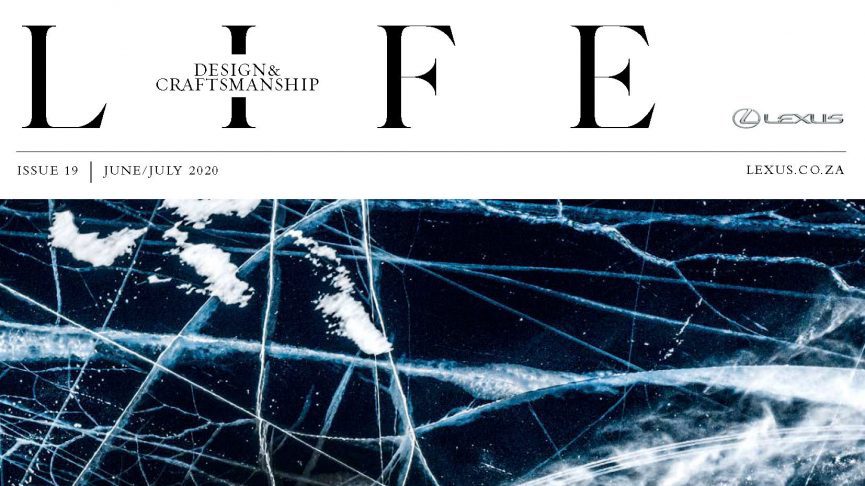I was invited to write the Thought Leader column for the Lexus Life Magazine July/July 2020 issue where I reflected on “Designing the New Normal.” You can access the article in print on page 2 of the magazine here: https://lexuslife.co.za/wp-content/uploads/2020/02/Lexus_19_final.pdf
“Designing the New Normal | From cars to furniture, housing, clothing, equipment – TECHNOLOGY from here on out is going to need to be considered holistically.
The rapid spread of COVID-19 has fuelled an unprecedented rate of change. Many people have taken this forced pause as a moment to reflect on what the new normal might be. This in itself is the crux of design – an opportunity to transform our existing situations into preferred ones.
Most people’s homes have become a refuge – and working from home has shown that a more flexible work-life balance is possible. The extended time spent in the home environment has brought about growing appreciation for space, and an awareness of how it can be improved. Future homes will need more multi-use spaces, with particular consideration for quiet work areas that can be closed off to maintain an element of work-life separation. As we turn inward, our connection with the outside world has been core to psychological stability. Those lucky enough to have gardens have realised both the physical and mental wellbeing they offer. Those without gardens will increasingly explore vertical gardening and establishing communal neighbourhood food gardens. These will link people better to their local communities and encourage more localised food systems.
Companies that used to source merchandise globally have been significantly exposed since lockdowns began. Most economies are in trouble, which has sparked a move towards patriotism and support for local businesses, manufacturing and products. This awakening will encourage a return to autonomy and self-sufficiency and the systems and products that support it. Key considerations for independence sit at the water, energy and food nexus, which is also crucial to sustainable development. There will be extensive growth in these sectors – people will be willing to part with their money as a way to feel more in control.
Building on the growing global sustainability movement, the COVID-19 pandemic has been used as a clear example of what happens when humanity does not accept that we are part of the world’s ecology, and do not control it. From cars to furniture, housing, clothing, equipment and technology, design from now on will be considered holistically.
Aesthetics are going to play a lesser role in product development as considerations for sustainable materials and methods of production move to the fore. The only way to do that is to embrace the complexity of the socio-technical-ecological web we are all part of. This is no easy undertaking and enterprises that attempt such zooming-out will be rewarded by customers who buy into and partner with their authentic efforts. The opposite will be true for businesses that superficially jump on the green bandwagon.
COVID-19 is not going anywhere soon, but these lifestyle disruptions can become precious opportunities for reimagining the way we live.”
